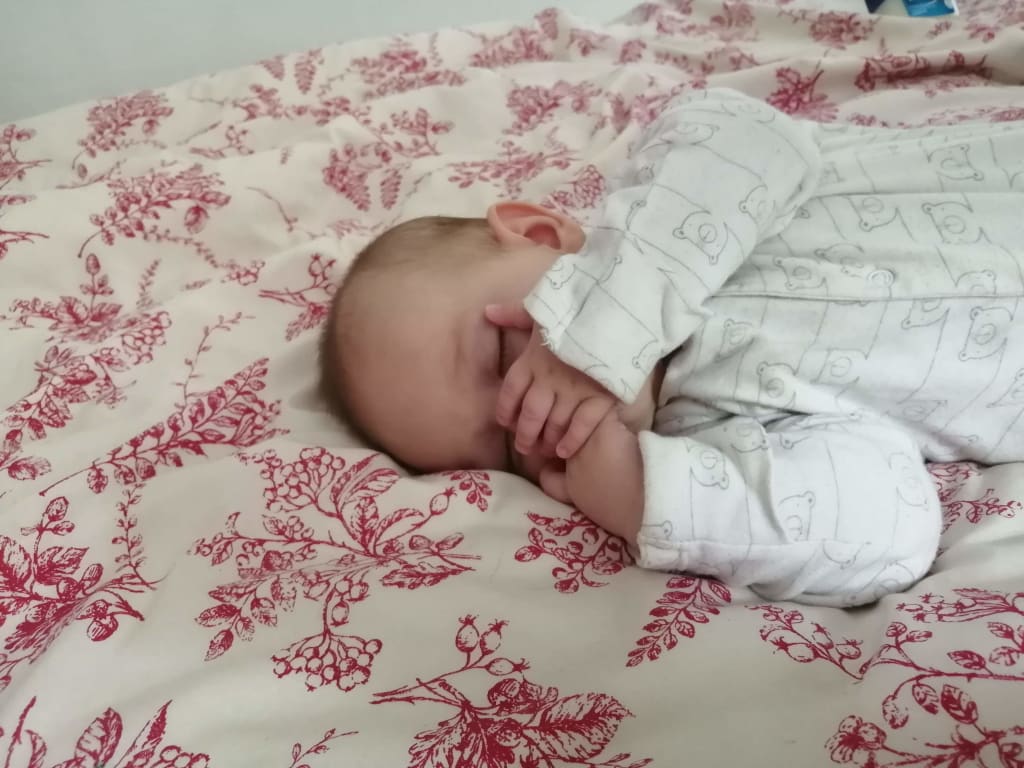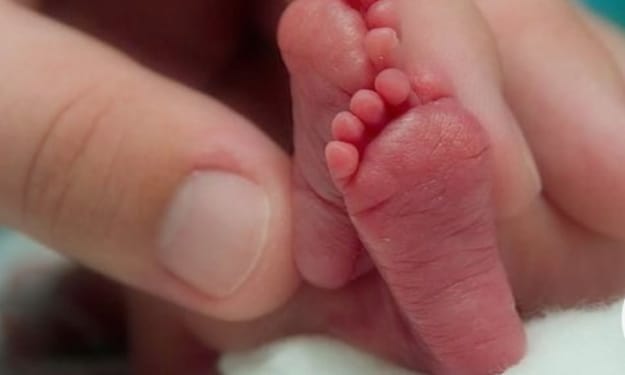Co-sleeping & The evolution of weaning advice.
Why co-sleeping can be considered an option.

Co-sleeping often gets disregarded as "not an option and "a big no no." I believe this is less based on the facts surrounding the sleeping method and more because they are worried about what other people will think.
Older generations are the worst for giving mums advice on what was the 'norm' 10-20-30+ years ago. What we need to understand is that there has been 10-20-30+ years worth of research and studies since they first became parents. Things change for a reason. What was the recommended advice then is probably not the case now. As an example, here is a brief history of the evolution of breastfeeding and weaning advice, which has changed massively over the past 2500 years.
-Ancient Greece-
The ancient Greeks waited until 12-18 months before weaning their babies, a lot longer than recommended today.
-The Romans and Ancient Hebrews-
It was recommended that babies should be weaned onto solid food when they had all their teeth, which was usually around 3 years old.
-Medieval times-
Wealthy Medieval women didn't have to breastfeed at all, but rather employed what was called a 'wet nurse' who did it for them. When it came to wean (at around 1-3 years old) the wet nurse would chew the babies food before feeding it to them. This caused many babies to die through the spread of nasty diseases.
-16th Century-
Similar to today women in the 16th century weaned their babies at around 7-9 months and breastfed until 18 months.
-18th Century-
In the 18th century things took a turn for the worst as advice changed drastically. It was recommended to wean as early as 2 months where food was mixed with meat juices, unpasteurised milk and drugs to help "relax" the babies. It was recommended to stop breastfeeding at 8 months but many babies were not lucky enough to make it to this age.
-19th Century-
Milk used for feeding small babies was pasteurised, infant formula was created and feeding equipment was starting to be sterilised. Infant deaths declined as good hygiene was becoming the standard practise.
-1900's-
Weaning was recommended at 12 months of age however many mothers didn't adhere to the advice.
-1950's-
Weaning was recommended earlier again as it was thought that breastfeeding alone was insufficient right from the start. The advice was to start babies on solid food, such as cereal, twice a day and from as early as 2 days old!
-1970's-
The advice for weaning in the 70's was to wean onto solid food at 3 months old.
-21st century-
It is currently recommended to breastfeed for 2 years and wean at around 6 months.
The advice we get from older generations now, is quite considerably less drastic in difference, than that of someone who lived through ancient eras. Never the less it does show that just because something used to be recommended, doesn't mean it should be practised now.
Getting back to the topic of co-sleeping, many mothers in recent surveys have admitted to keeping their choice of co-sleeping a secret. Some women have even revealed that they experience anxiety and depression due to the views and opinions other people have on their sleeping arrangements.
The common opinion regarding co-sleeping seems to be that people think babies become to dependant on their mothers. They believe the babies are being spoilt, however recent studies have revealed that it is quite the opposite.
So what has new research and studies uncovered? Well, most importantly it shows that you cannot spoil a baby. Babies cry because they need something. It is a common misconception that babies will cry less if you leave them to cry it out. In fact babies whose needs are met once they cry actually cried less in the long run. If a baby cries and cries and their needs are not met they become anxious as they feel there is no way to communicate with the parent.
Independence comes from frequent episodes of having their needs met and not from being forced to deal with issues on their own. It is clear to see that ignoring a crying baby is incredibly stressful for them. I am a firm believer that babies do not cry for no reason. This is not to say that if you don't sprint to your baby as soon as they cry you are a bad mother! Please don't jump out of your shower with shampoo still in your hair because you heard your baby startle. We are still human after all with lots of other tasks in a day that need completing, however we shouldn't be ignoring our babies when they are trying to communicate with us.
Sleep training is the opposite of co-sleeping and research into this method has uncovered many negative effects. It has recently been discovered that babies who were sleep trained before 6 months of age had increased stress levels, stopped the consumption of breast milk prematurely, heightened maternal anxiety for mothers and the baby being at higher risk of SIDS (if sleeping in a separate room from the parent.)
W.H.O recommends sleeping in the same room as your baby for at least the first 6 months and breastfeeding for 2 years. If you think about it, take primates for example, a mother wouldn't leave their newborn babies in a different enclosure to them whilst they slept. Mothers keep their infants close and protect them.
Co-sleeping isn't necessarily sleeping in the same bed, there are different forms of co-sleeping. Close contact co-sleeping can help the infant to maintain a more stable body temperature and also encourages babies to breath more frequently and experience less stress. Studies showed that in cases of close contact co-sleeping, almost 100% of the time the baby would face the mother!
Co-sleeping can also be beneficial to the breastfeeding mother as they do not need to get up and go into another room to feed. This can be especially beneficial in the first few months when babies on average can wake between 2-14 times in the night.
It is important to know that not all circumstances of co-sleeping safe. You should never share a bed with your child if you have consumed alcohol, are under the influence of any drugs or are extremely tired. You must also take care to make sure there is no chance your baby could be smothered by duvets, blankets or pillows. Another thing to check is that they cannot become trapped, for example between the mattress and a wall.
Co-sleeping isn't for everyone but the pros and cons are worth researching before you decide. Every baby is different and every mother is different. The most important thing to consider is the health and safety of your baby and the mental wellness of the mother. Try not to worry about what everyone else is doing or what they think about what you are doing and learn to trust your instinct. Know when to do your research and when to ask for help.
When discussing with other mothers try to be kind, considerate and not judgemental and remember mum shaming is never acceptable. Parenthood doesn't come with a manual and we are all doing our best.
About the Creator
Lana Jayne
My name is Lana.






Comments
There are no comments for this story
Be the first to respond and start the conversation.